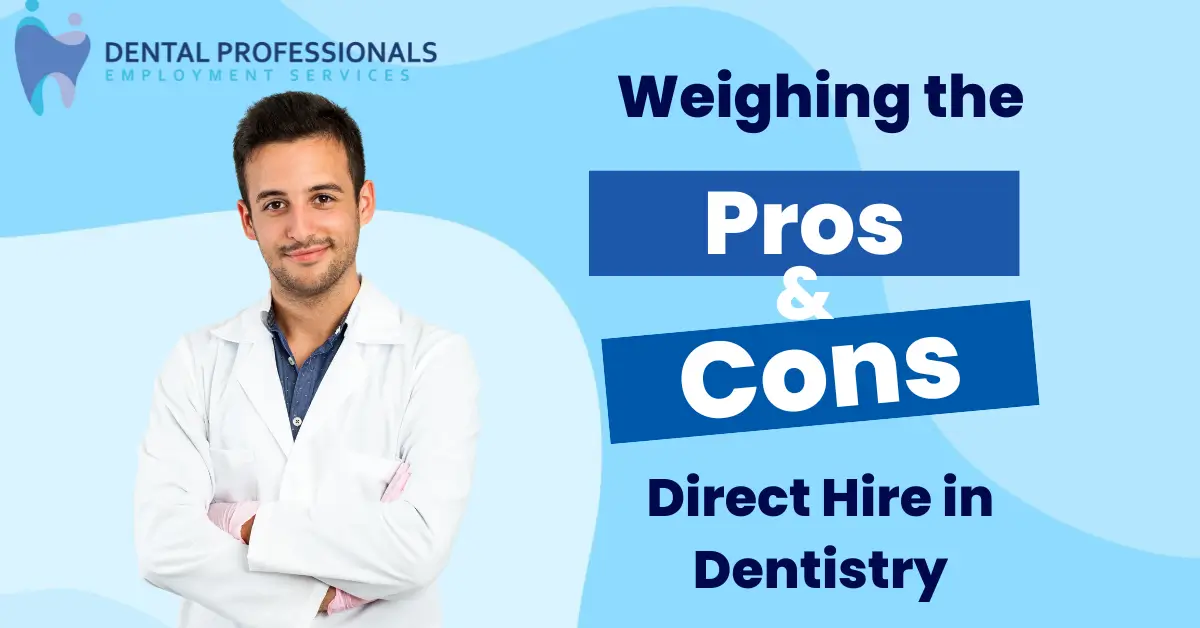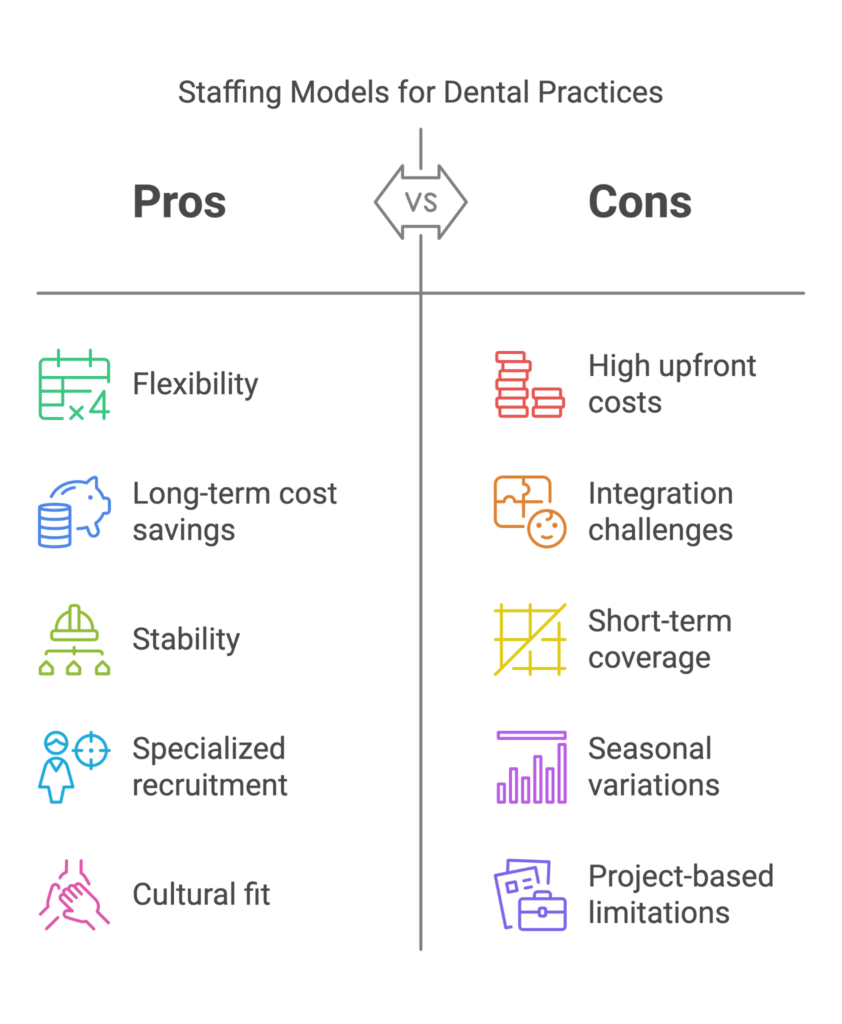Direct Hire Services for Dental Practices: The Pros, Cons, and Making the Right Choice

Finding and retaining skilled dental professionals is a constant challenge for practices, especially in the competitive Pacific Northwest market. Direct hire services, where a staffing agency places candidates directly onto your payroll, offer a promising solution for building a permanent team. However, as with any staffing strategy, there are both advantages and disadvantages to consider. Let’s delve into the pros and cons of direct hire services to help you make an informed decision for your dental practice.
What Are Direct Hire Services in the Dental Industry?
Direct hire, also known as permanent placement, is a staffing model where a specialized agency recruits, screens, and presents qualified candidates who become full-time employees on your practice’s payroll. Unlike temporary staffing, which is ideal for short-term needs, direct hire focuses on building a long-term, stable team.
Why Dental Practices Choose Direct Hire Services
1. Reduced Turnover and Increased Stability
High employee turnover is costly, with studies indicating that replacing an employee can cost up to two times their annual salary. Direct hire fosters loyalty and commitment, reducing turnover rates and saving on recruitment and training expenses.
2. Enhanced Team Cohesion and Cultural Fit
Hiring full-time employees allows you to assess candidates’ personalities, work ethics, and values, ensuring they align with your practice’s culture. This creates a more cohesive work environment, improves communication, and enhances patient care.
3. Targeted Expertise and Skill Development
Direct hire enables dental practices to recruit professionals with the precise skills and experience required, even for specialized roles such as orthodontics, periodontics, or pediatric dentistry. Employees hired through this model are also more likely to invest in their professional growth, contributing to the overall expertise of your team.
4. Long-Term Cost Efficiency
While direct hire requires an upfront investment, it often proves more cost-effective in the long run. Research shows that highly engaged teams, often built through direct hiring, deliver 21% greater profitability and improved patient satisfaction.
Challenges of Direct Hire for Dental Practices
1. Higher Upfront Costs
The initial investment, including agency fees and onboarding expenses, can be significant. For smaller practices with limited budgets, this may present a financial challenge.
2. Longer Hiring Timeline
Because direct hire involves thorough screening, interviews, and skills assessments, it can be a more time-consuming process than temp-to-hire staffing. This could be problematic for practices with immediate staffing needs.
3. Potential for Mismatched Candidates
Despite rigorous screening, there is always a risk that a new hire may not be the right fit, leading to decreased productivity and additional hiring costs if the process needs to be repeated.
4. Reduced Staffing Flexibility
Permanent employees mean a long-term commitment, which can limit a practice’s ability to quickly adjust staffing levels in response to patient volume fluctuations.
Choosing the Right Staffing Model for Your Dental Practice
1. Practice Size and Budget
- Smaller Practices: Temporary staffing may provide the flexibility needed to manage fluctuating patient volumes without high upfront costs.
- Larger Practices: With greater financial resources and a focus on stability, direct hire can provide long-term cost savings and a stronger, more committed team.
2. Short-Term vs. Long-Term Needs
- Consistent Needs: Direct hire is the best option for practices with stable, ongoing staffing requirements.
- Fluctuating Needs: Practices experiencing seasonal variations in patient volume may benefit from temporary staffing.
- Project-Based Needs: If a practice requires specialized skills for a short-term project, contract staffing could be the ideal solution.
3. Specialization and Expertise
- Niche Roles: Direct hire is advantageous for recruiting highly specialized professionals such as orthodontists, oral surgeons, and office managers.
- General Dentistry: A combination of direct hire and temporary staffing may work best, ensuring stability while allowing flexibility during peak times.
4. Cultural Fit and Team Dynamics
- Direct Hire: Enables a thorough evaluation of candidates’ alignment with your practice’s culture, ensuring long-term cohesion.
- Temporary Staffing: While useful for short-term coverage, integrating temporary staff into a well-established team can sometimes be challenging.
5. Regional Hiring Considerations
If your dental practice is located in Greater Seattle, Puget Sound, or Oregon, staffing solutions can be tailored to meet the specific needs of your region.

Making an Informed Decision
Dental Professionals: Your Trusted Staffing Partner
Dental Professionals understands the unique challenges faced by dental practices in the Pacific Northwest. Whether you need a direct hire or a temporary staffing solution, our experienced recruiters provide personalized service and expert guidance throughout the hiring process.
Key Takeaways:
- Direct hire staffing offers stability, reduced turnover, and long-term cost efficiency for dental practices.
- Temporary staffing provides flexibility but may not always be the most cost-effective solution.
- The best staffing model depends on your practice’s unique needs and long-term goals.
Contact Dental Professionals today for a free consultation and find the right staffing solutions for your practice.

